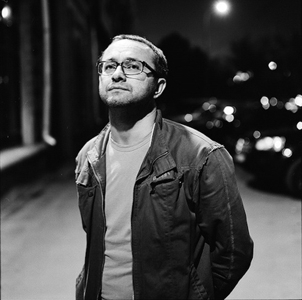Cannes Reviews: Elena (Russia)
05/22/2011
A middle-aged wife and mother is driven to desperate, decisive action in Elena, a wise and impeccably controlled drama that finds Russian helmer Andrei Zvyagintsev in outstanding form. Scrapping the portentous religiosity of his previous picture, The Banishment, while fully retaining his fascination with the moral impact of individual choices within a fragile family unit, Zvyagintsev spins a taut, engrossing yarn about a coveted inheritance, cruel class differences and quietly monstrous misdeeds. Mysteriously absent from competition at Cannes, this winner of a special jury prize in Un Certain Regard should parlay certain critical acclaim into a robust arthouse following abroad.
In his 2003 debut, The Return, Zvyagintsev evinced an eye for landscapes and a rich sense of biblical allegory, talents he seems to have constructively refocused after the less glowing response to 2007's The Banishment. Long takes and pregnant silences are still very much hallmarks of his aesthetic, but here that astute visual sense has been placed firmly in service of a tight domestic drama that grips at every step.
The opening passages unfold in the cavernous rooms of a huge rural estate where fiftysomething Elena (Nadezhda Markina) rises and tends to the needs of her much older husband, Vladimir (Andrey Smirnov). While their terse breakfast-table exchanges have the feel of a well-worn routine, something about Elena's body language conveys a sense of alienation, of not quite belonging in this chilly lap of luxury.
It becomes clear why when Elena heads for the nearby city and drops in on her son from a previous marriage, Sergei (Alexey Rozin). Unemployed and over-liquored, Sergei lives in a cramped, grotty apartment with his wife (Evgenia Konushkina) and two kids, the elder of whom, teenage Sasha (Igor Ogurtsov), looks well on his way to becoming a layabout much like his father. A strict believer in hard work and responsibility, wealthy Vladimir despises Elena's loutish family, often shunning her requests for financial assistance on their behalf.
With intelligent economy, scribes Zvyagintsev and Oleg Negin parcel out the details of how Elena first caught Vladimir's eye, nursing the elderly widower after he fell ill years ago. Vladimir's poor health again precipitates a major change in the family when he suffers a heart attack, and Elena seeks to forge peace between her husband and his estranged daughter, Katerina (Elena Lyadova). Their meeting goes perhaps better than Elena hoped, as Vladimir decides his daughter will inherit the bulk of his fortune, forcing his wife to find a different way of helping her cash-strapped son.
The literate, acerbic screenplay (by Zvyagintsev and Oleg Negin) manages to foreground moral viewpoints without turning didactic or compromising its realist texture. The scene that reunites Vladimir and Katerina is especially rich, allowing them to clash in their ideas vis-a-vis the importance of money and the purpose of child-rearing, even as it fiercely reasserts the primacy of the father-daughter bond. Here and elsewhere, Zvyagintsev extends his characters a compassion that bespeaks a bone-deep understanding of human unpredictability, the way people often reveal or emphasize different aspects of themselves depending on who's listening.
No one in this drama is more complex than Elena herself, whose quiet, deferential nature conceals untold reserves of anxiety and, eventually, treachery; an early scene of her praying silently in a church gives little indication of the lengths to which she will go. That Elena's ruthlessness can exist alongside her entirely sincere compassion is one of the film's most unsettling paradoxes, realized to perfection in Markina's beautifully nuanced performance, first among equals in a very fine cast.
The class inequality at the story's core is implicit but never directly referenced, and while it's clear enough where Zvyagintsev's sympathies lie, he dryly acknowledges the limited means and options available to lazy social-welfare cases like Sergei without demonizing them. Helmer is too respectful of his characters and his audience to contrive a moralistic ending, though we're left with the sense that no crime is without its unique psychological punishments.
Mikhail Krichman's widescreen cinematography, working in concert with Vasiliy Gritskov and Valeriy Zhukov's production design, serves to visually reinforce the moral complexity of the film's approach, emphasizing the grandeur of Vladimir's manse but also the gaping distance, emotional as well as spatial, between husband and wife. By contrast, Sergei's apartment, looking very crowded and squalid in the broader aspect ratio, nonetheless teems with life and activity; no wonder Elena, despite having married better, feels so at home here.
Lensed on a palette awash in cool blues and grays, the film favors fixed, precisely composed shots with the late exception of one handheld-shot sequence, a seeming narrative digression that underscores the notion of a dog-eat-dog world lurking beneath even society's polite surfaces. Philip Glass' score, breaking the silence at key dramatic intervals with a memorably foreboding thrum, is one of his best.
Camera (color, widescreen), Mikhail Krichman; editor, Anna Mass; music, Philip Glass; production designers, Vasiliy Gritskov, Valeriy Zhukov; art directors, Andrey Ponkratov, Maxim Korsakov; set decorators, Andrey Grachev, Sasha Lozovsky, Victoria Kudinova, Inna Saltikova; costume designer, Anna Bartuli; sound (Dolby Digital), Andrey Dergachev; line producer, Katya Marakulina; casting, Elina Ternyeva. Reviewed at Cannes Film Festival (Un Certain Regard, closer), May 19, 2011. Running time: 109 MIN.
Justin Chang
"Daily Variety"
